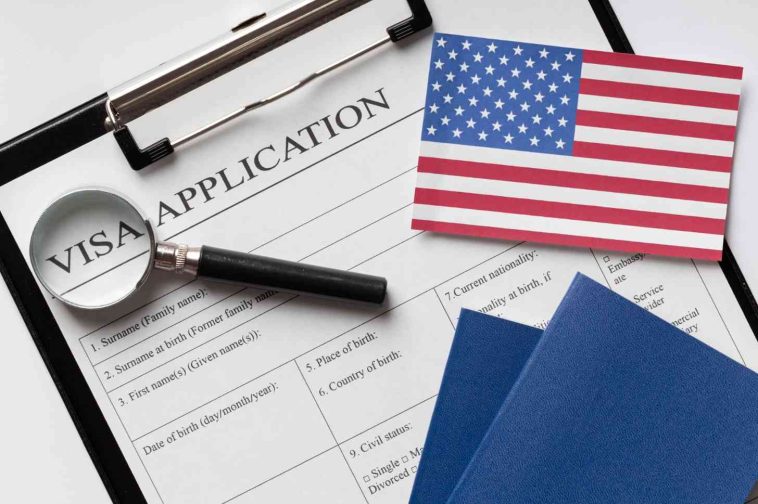If you’re looking to work in the United States, figuring out which visa suits your situation is often the first step. With a variety of options that cater to different professions, skills, and needs, it’s essential to get the right one lined up. But which U.S. work visa is the best fit for you?
O-1 Visa – For Individuals with Extraordinary Ability
The O-1 visa is a standout option, specifically for individuals who have demonstrated “extraordinary ability or achievement” in fields such as science, education, business, athletics, or the arts. So, what makes this visa unique, and how do you know if you qualify? The O-1 visa is highly selective and requires evidence that you’re among the top of your field. You might pass the O-1 visa qualifications if you have notable awards, extensive media coverage, or other recognized accomplishments in your area of expertise.
Key Points of the O-1 Visa:
- It’s aimed at people with exceptional achievements.
- You’ll need a job offer or contract from a U.S. employer who will act as your sponsor.
- Extensive documentation is required to prove your accomplishments (think awards, publications, or international recognition).
- It’s valid initially for three years, with potential extensions if the project or job continues.
The O-1 is ideal if you’re an artist, scientist, or professional recognized on an international level. While it’s not the easiest visa to qualify for, it’s highly respected and can be renewed as long as you’re working in your area of expertise in the U.S.
H-1B Visa – For Skilled Workers in Specialty Occupations
If you work in a field that requires specialized knowledge and at least a bachelor’s degree or equivalent, the H-1B might be the right fit. Common among professionals in technology, finance, healthcare, and engineering, this visa is employer-sponsored and often used by U.S. companies to fill roles requiring high-level skills.
Important Details about the H-1B Visa:
- You must have a relevant job offer from a U.S. employer willing to sponsor you.
- The H-1B has an annual cap, which means there are limited slots available each year.
- It’s typically issued for three years and can be extended up to six years.
- You need at least a bachelor’s degree or equivalent experience in the field of employment.
The H-1B is highly sought-after and competitive due to the annual cap, so early application is critical. If you’re selected, this visa offers a pathway to work and potentially seek permanent residency down the line.
L-1 Visa – For Intra-Company Transfers
The L-1 visa is designed for employees of multinational companies who are transferring to a U.S. branch. If you’re already working for a company that has a U.S. presence, the L-1 could be a convenient option. It’s particularly common among managerial and executive-level employees, as well as employees with specialized knowledge.
Quick Facts on the L-1 Visa:
- Available for managerial, executive, or specialized knowledge roles.
- You must have worked for the company for at least one year before the transfer.
- There are two types of L-1 visas: L-1A for managers and executives and L-1B for specialized knowledge employees.
- Valid for one to three years, with extensions available (up to seven years for L-1A and five years for L-1B).
This visa is an efficient way for companies to bring over their top talent without having to go through the lengthy process of recruiting and training new hires in the U.S.
E-2 Visa – For Investors and Entrepreneurs
The E-2 visa is geared toward individuals looking to invest a substantial amount of capital in a U.S. business. It’s ideal if you’re an entrepreneur or investor planning to start or buy a business in the U.S. While there’s no strict dollar amount required, the investment must be significant enough to support a viable business operation.
Essential Information on the E-2 Visa:
- Open to citizens of countries with which the U.S. has an investment treaty.
- You must make a substantial investment in a U.S. enterprise.
- The visa is renewable as long as the business remains operational and profitable.
- Unlike other visas, the E-2 does not have a direct path to permanent residency.
The E-2 is particularly appealing for entrepreneurs wanting to test the waters in the U.S. business market, offering flexibility and the potential for long-term stay with renewals.
J-1 Visa – For Exchange Visitors
If you’re coming to the U.S. for cultural exchange, training, or research, the J-1 visa might be what you need. Primarily designed for educational and cultural exchange programs, this visa is ideal for students, researchers, interns, and teachers.
J-1 Visa Essentials:
- Sponsored by an approved exchange program or organization.
- Available for a range of programs, including internships, research, and teaching.
- Valid for the duration of the specific program, which can vary from a few weeks to a few years.
- Some J-1 visa holders are required to return to their home country for two years after completing their program, depending on their field of study and country of origin.
The J-1 visa offers a great opportunity for those looking to gain experience or cultural insight in the U.S. without a long-term commitment. Just make sure to check the conditions of your specific exchange program.
Find Your Path to the U.S.
Selecting the right work visa can seem like a big task, but understanding each option’s core requirements and benefits makes it easier to choose the path that suits your needs. Each visa category has its own set of eligibility criteria, so be sure to explore what’s needed for your unique situation. Whether you’re an artist with exceptional talent, a skilled professional, or an entrepreneur looking to invest, there’s likely a visa that aligns with your goals and ambitions in the United States. Getting started on the right visa path can be the foundation for an exciting chapter in your career and personal journey.





GIPHY App Key not set. Please check settings